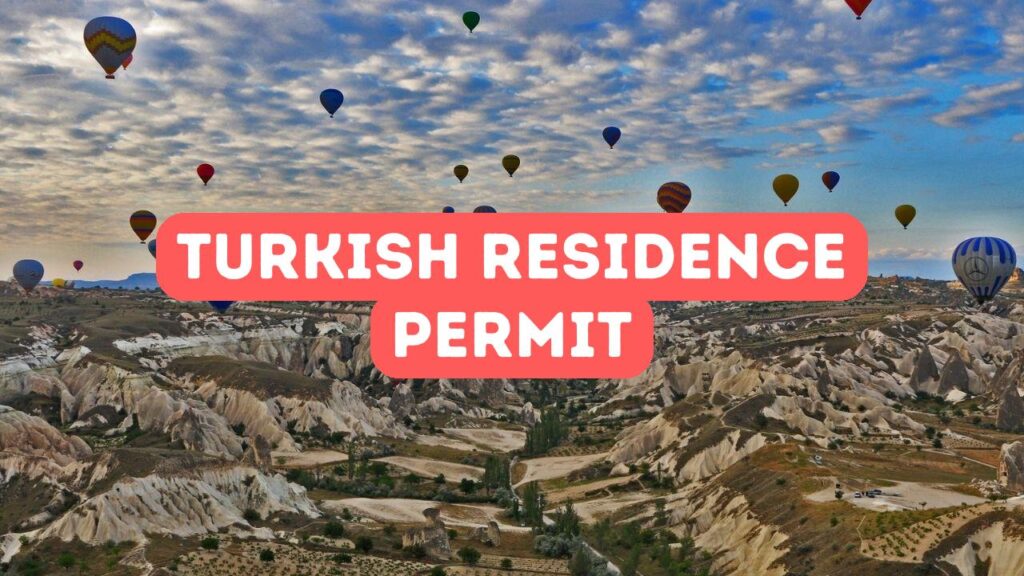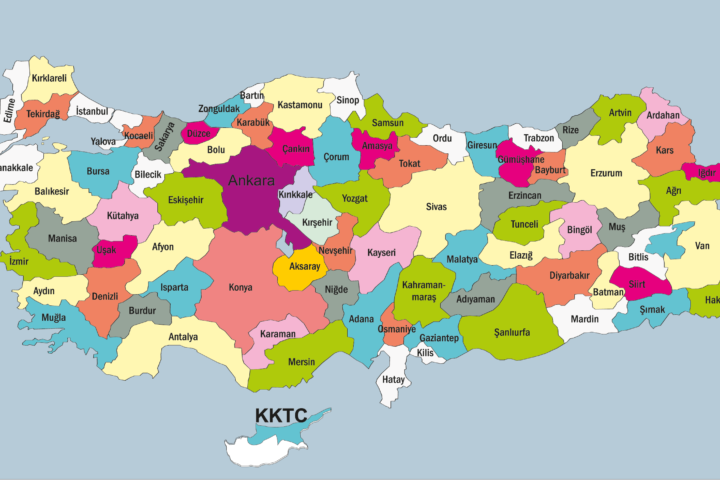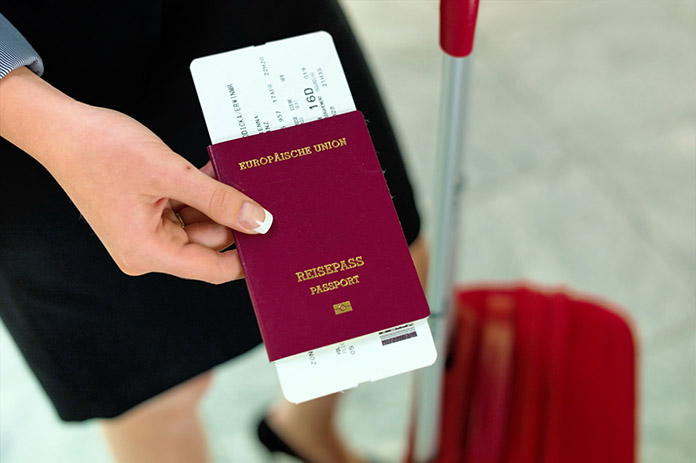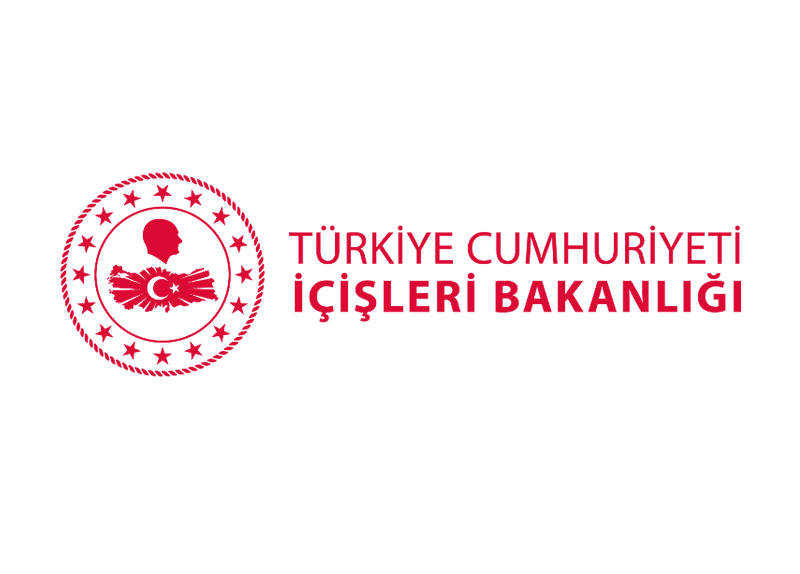Navigating the path to securing a Turkish residence permit is a critical step for international students wishing to immerse themselves in Turkey’s rich cultural heritage and advanced educational system. At Campus Turquie, we understand that this process can be both complex and daunting. Our mission is to simplify these procedures and provide comprehensive support to ensure a seamless transition. A residence permit not only allows students to legally reside in Turkey but also opens the door to a wealth of academic and personal growth opportunities. In this blog post, we will guide you through the essential steps for obtaining a Turkish residence permit, highlighting key requirements and offering expert tips to help you succeed in your academic journey in Turkey.
Eligibility Criteria for a Turkish Residence Permit
To qualify for a Turkish residence permit, applicants must meet several key eligibility criteria. Firstly, they need to have an acceptance letter from a recognized Turkish educational institution, proving their enrollment as a student. Additionally, applicants must possess a valid passport with a duration extending at least 60 days beyond the end of the requested residence permit period. Health insurance covering the entire stay in Turkey is also mandatory. Furthermore, proof of financial stability, such as bank statements or a scholarship, demonstrating sufficient funds to cover living expenses throughout the study period, is required. These foundational prerequisites ensure that students are adequately prepared to embark on their educational journey in Turkey legally and comfortably.
Moreover, students should be aware that certain documents need to be officially translated into Turkish and notarized to meet the application requirements. Among these are the acceptance letter, health insurance policy, and financial statements, alongside copies of the passport. Additionally, applicants must submit a completed residence permit application form, which can be obtained online from the Turkish Directorate General of Migration Management’s website. A recent biometric photograph that meets the specified standards is also mandatory. It is advisable to gather these documents promptly, as timely submission can prevent potential delays in the approval process. At Campus Turquie, we can assist you in navigating these administrative tasks efficiently, ensuring that every piece of documentation is in order for a successful application.
Finally, it’s important to note that the application for a Turkish residence permit must be submitted within a specified timeframe, typically within a month of entering Turkey. Students may apply either online or directly at local immigration offices, although the latter often requires scheduling an appointment in advance. Once the application is submitted, applicants should keep track of their application status through the dedicated online portal. Any required interviews or additional documentation should be responded to promptly to avoid delays in processing. Upon approval, students will receive an official residence permit card, which they should carry at all times as proof of their legal status in Turkey. Campus Turquie is committed to guiding you through each stage of this process, offering personalized assistance to ensure a smooth and stress-free application experience.
Required Documents and Application Process
The first step in securing a Turkish residence permit involves gathering the necessary documents, a task that might appear overwhelming at first. Applicants need a valid passport, biometric photos, a completed residence permit application form, proof of health insurance, and an acceptance letter from their Turkish educational institution. Additionally, students are required to present financial proof showing they can support themselves during their stay. Each document plays a crucial role in the approval process, thus ensuring their accuracy and completeness is paramount. By working closely with Campus Turquie, you can navigate this document checklist efficiently and avoid common pitfalls that could delay your application.
Once you have gathered all the required documents, the next step is to submit your application. This can be done online through the official Turkish e-Residence system, where you will fill out an application form and upload your documents. After submitting your application, you will need to book an appointment at the nearest Provincial Directorate of Migration Management office. This appointment is crucial as you will be required to present the original copies of your documents, have your fingerprints taken, and undergo a brief interview to confirm your application details. It is advisable to arrive early and be well-prepared to ensure a smooth process. At Campus Turquie, we offer guidance on completing each step meticulously, ensuring all formalities are addressed to enhance your chances of a successful application.
After successfully completing the in-person appointment, the wait for your residence permit begins. Typically, the decision process takes a few weeks to a few months, during which your application will be thoroughly reviewed. It is crucial to stay updated during this period; you can regularly check the status of your application online through the e-Residence system. If any additional information or documents are required, you will be notified, and prompt action is recommended to avoid further delays. Upon approval, your residence permit card will be mailed to your registered address, formally granting you the right to reside in Turkey. At Campus Turquie, we remain by your side throughout this entire journey, offering support and advice until you securely hold your Turkish residence permit in hand.
Common Challenges and How to Overcome Them
One of the most common challenges international students face when applying for a Turkish residence permit is understanding the extensive documentation required. Many students are often overwhelmed by the necessity to gather numerous official papers, including proof of enrollment, financial statements, health insurance, and a valid passport. To overcome this hurdle, it is crucial to start the application process early and meticulously follow the guidelines set by the Turkish authorities. At Campus Turquie, we assist our clients by providing a detailed checklist and personalized advice, ensuring they collect and submit all necessary documents accurately and on time. By staying organized and seeking professional guidance, students can navigate the documentation process with greater ease and confidence.
Another significant challenge is the language barrier, which can make communication with local authorities and understanding official documents more difficult. Many forms and instructions are available only in Turkish, creating confusion and potential delays for non-Turkish-speaking students. To address this issue, Campus Turquie offers translation services and bilingual support to help students comprehend the requirements and complete their applications accurately. Additionally, we conduct language workshops and provide resources to enhance our clients’ Turkish skills, empowering them to handle bureaucratic procedures more independently. By bridging the language gap, we ensure that our clients can communicate more effectively and overcome language-related obstacles throughout the residence permit application process.
A third, often overlooked challenge is the ever-evolving regulatory landscape surrounding residence permits in Turkey. The laws and regulations governing these permits are subject to change, sometimes with little notice, which can cause confusion and potential setbacks for students. To counter this issue, it is essential for applicants to stay informed about any updates in the legal requirements. At Campus Turquie, we keep a close eye on policy changes and regularly update our clients with the latest information. Our team of experts stays in constant communication with local authorities to ensure that all advice and guidance provided are current and accurate. By staying proactive and informed, students can mitigate the risk of unforeseen complications, making their transition to studying in Turkey as smooth and stress-free as possible.







